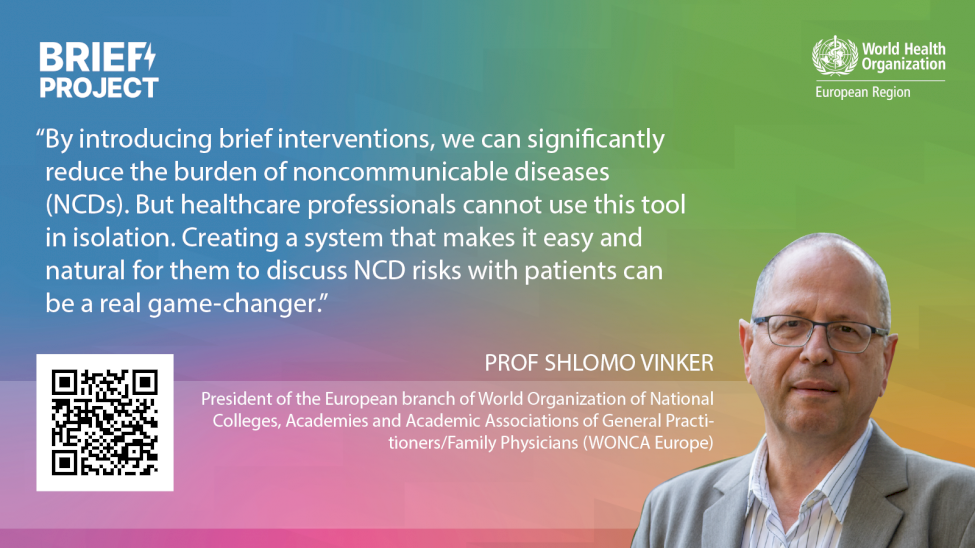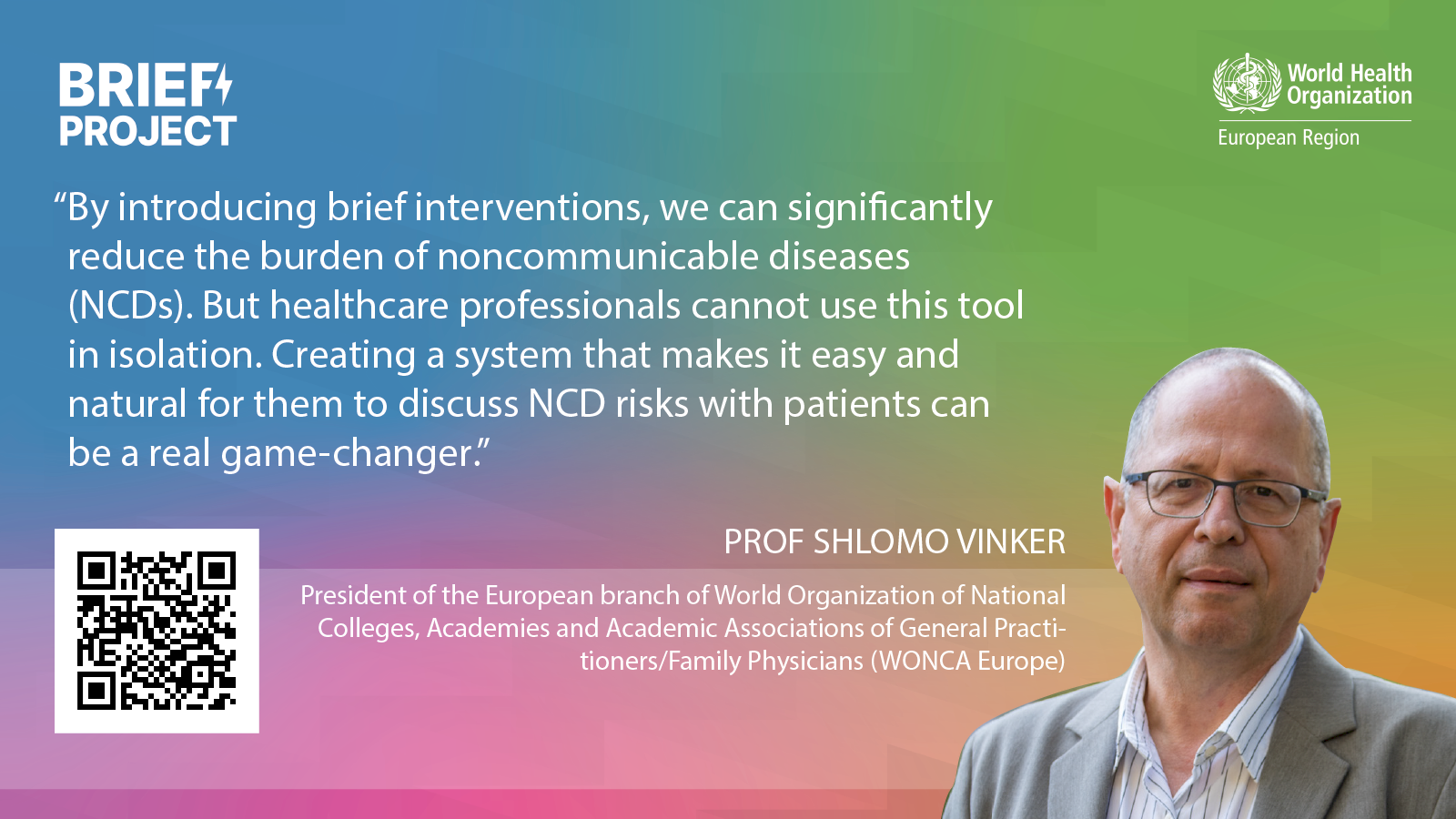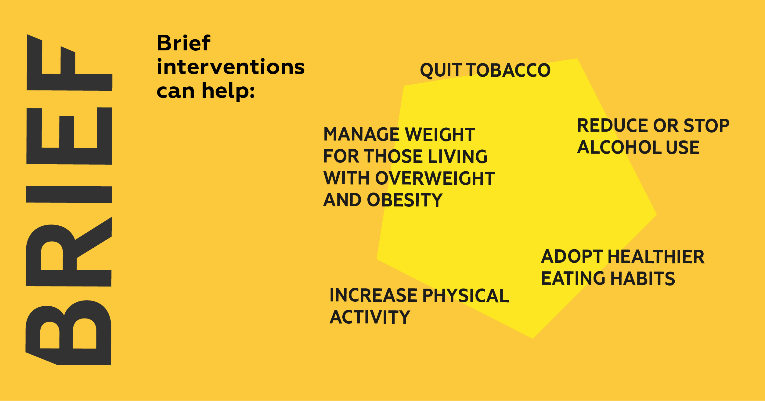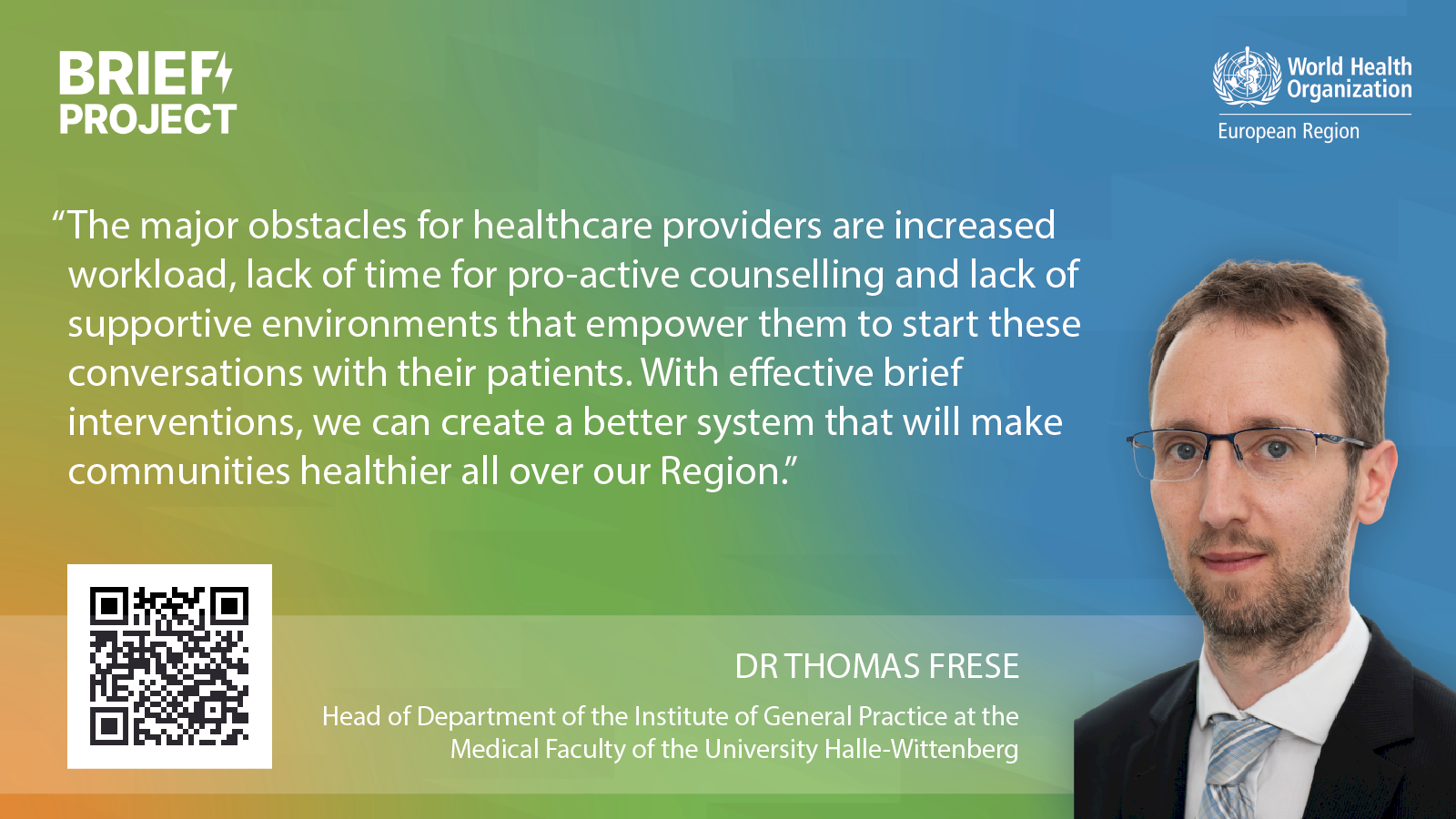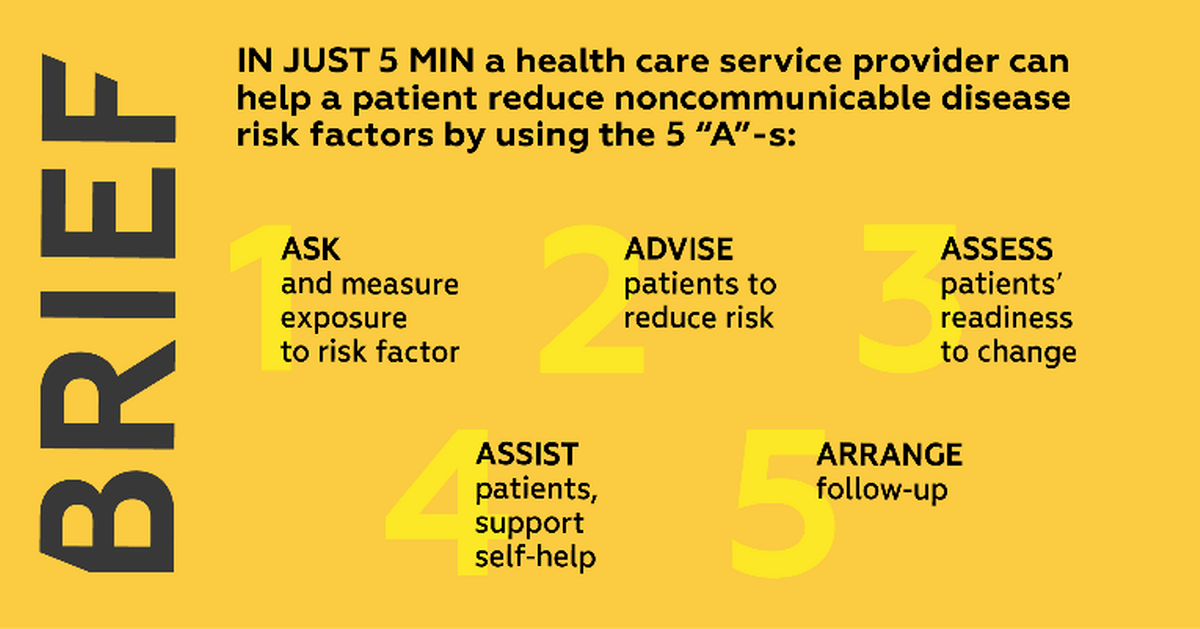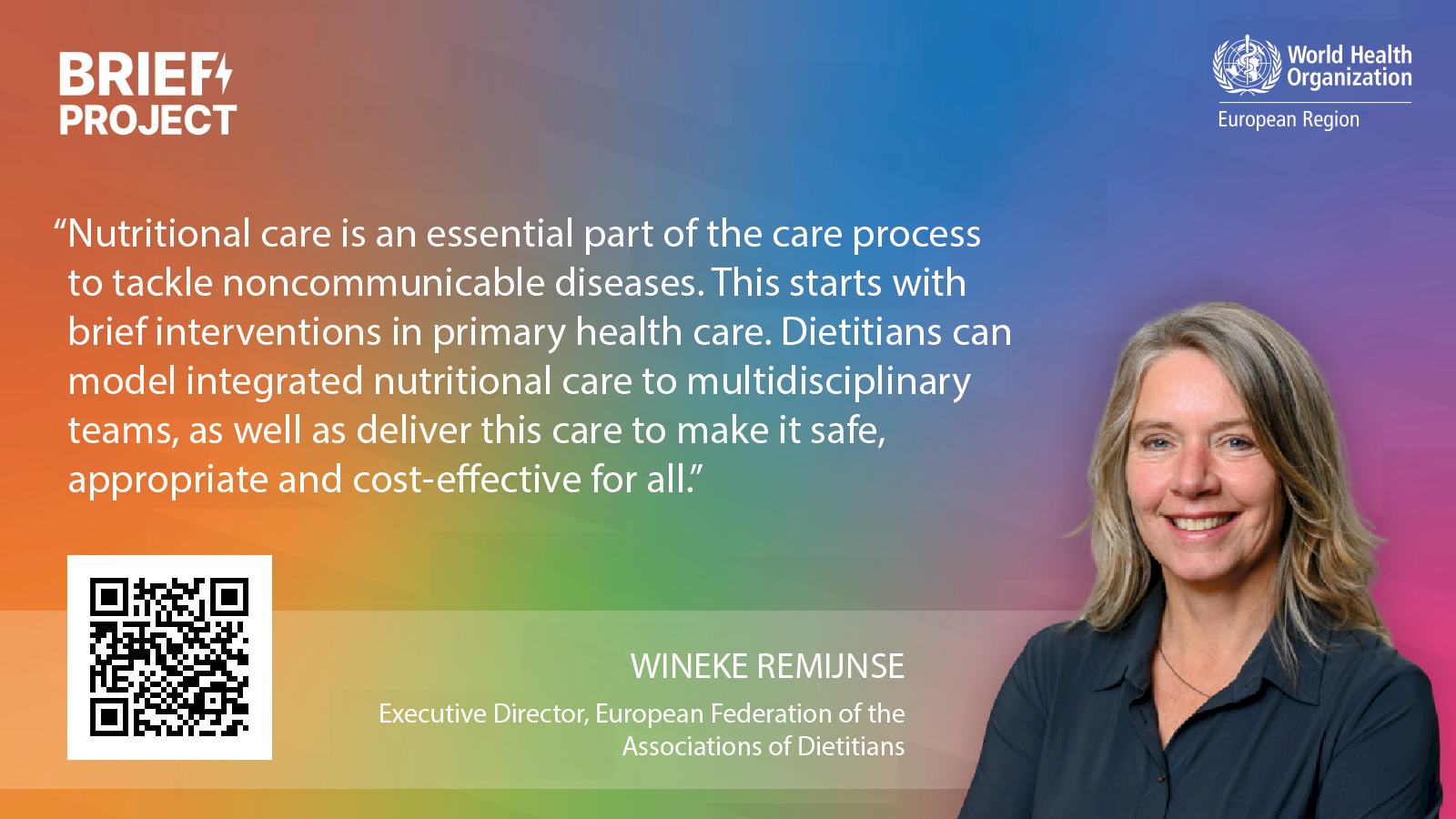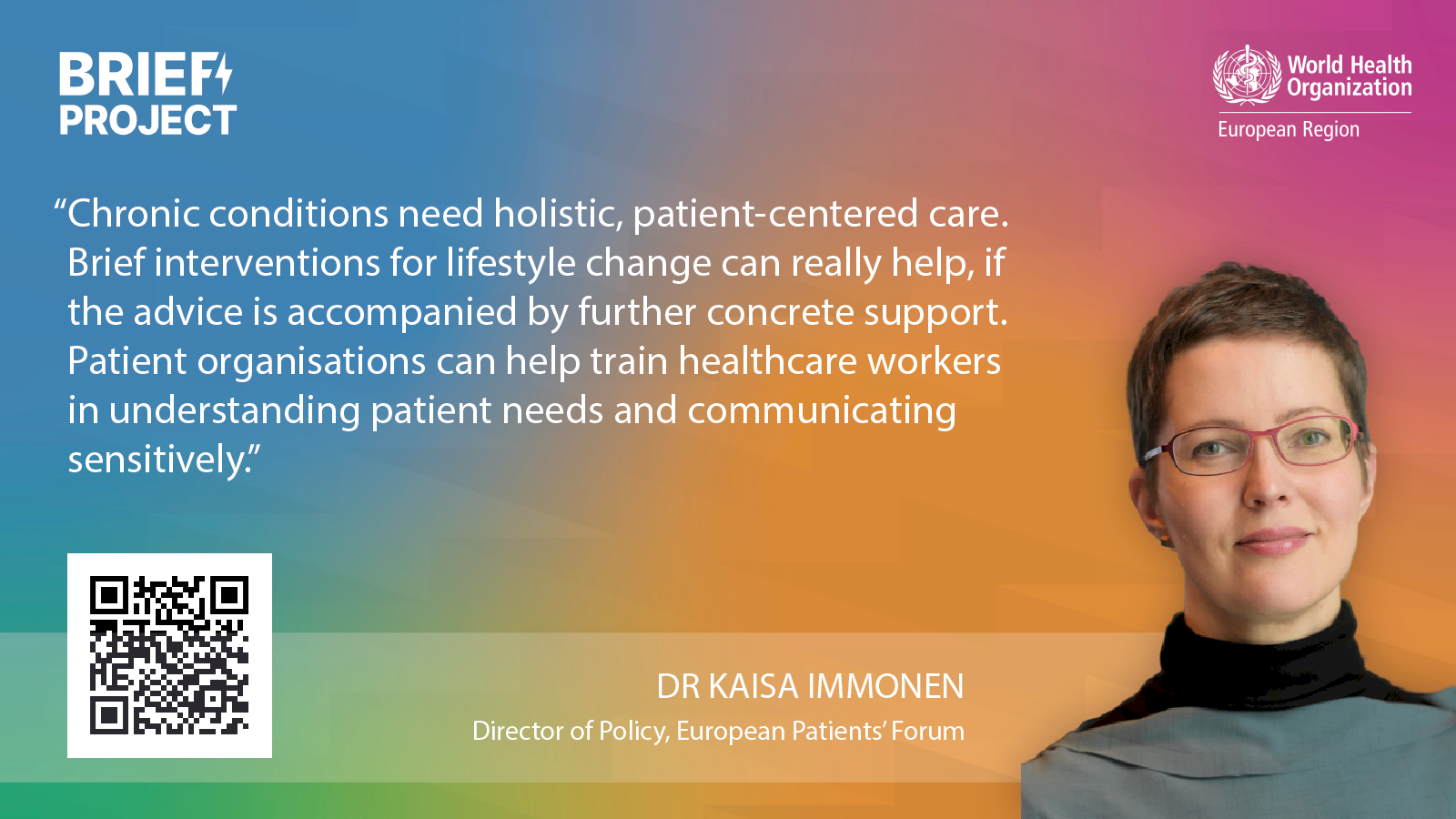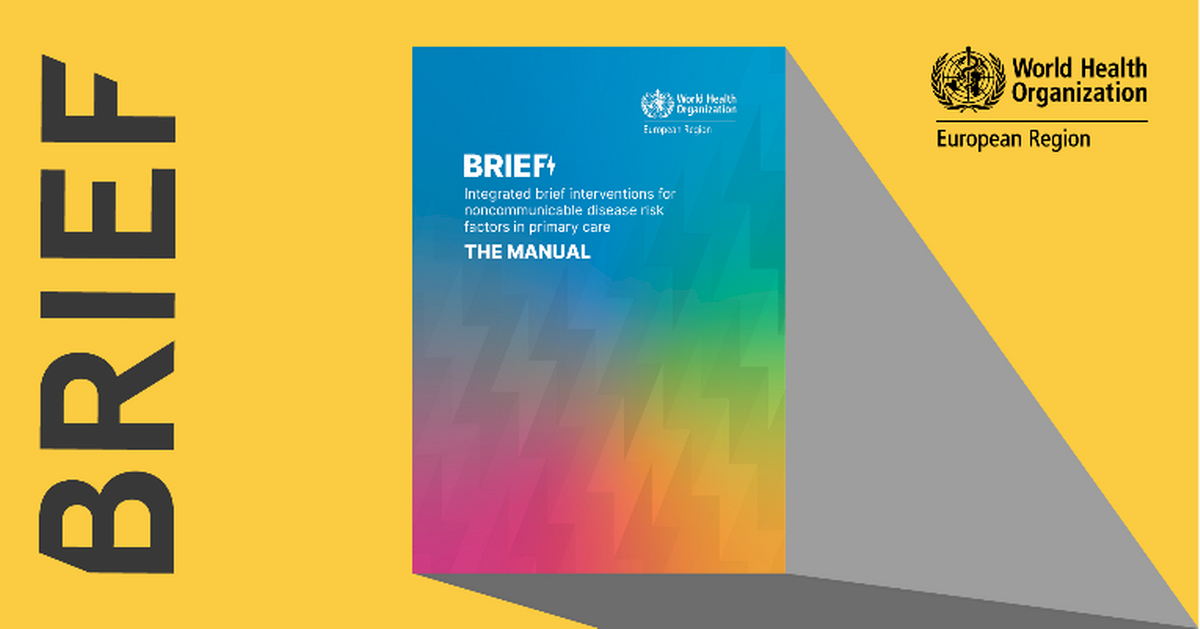|
Brief interventions can reduce the #NCD burden. But health care professionals need a system that makes it easy and natural for them to discuss #NCD risks with their patients. |
|
|
Primary-care providers are in an ideal position to help patients
|
|
|
Major challenges for health care workers:
Brief interventions can help create a new system to #beatNCDs. |
|
|
Even during a short consultation, health care provides can ? ask patients about exposure to #NCD risk factors ! advised on how to reduce risk By measuring all patients’ exposure to risk factors and supporting behaviour change, primary-care providers can make a huge difference. |
|
|
Nutritional care is essential to tackle noncommunicable diseases. Dietitians in #PrimaryCare can model this care to teams and deliver it in a safe, appropriate and cost-effective way using brief interventions. |
|
|
Chronic conditions need holistic, patient-centered care. Patient organizations can train health care professionals in understanding patient needs and communicating sensitively, when delivering brief interventions. |
|
|
WHO/Europe’s #NCD Office new manual for #PrimaryCare demonstrates how to use brief interventions to #beatNCDs. Read it here: https://apps.who.int/iris/handle/10665/364437 |
|

